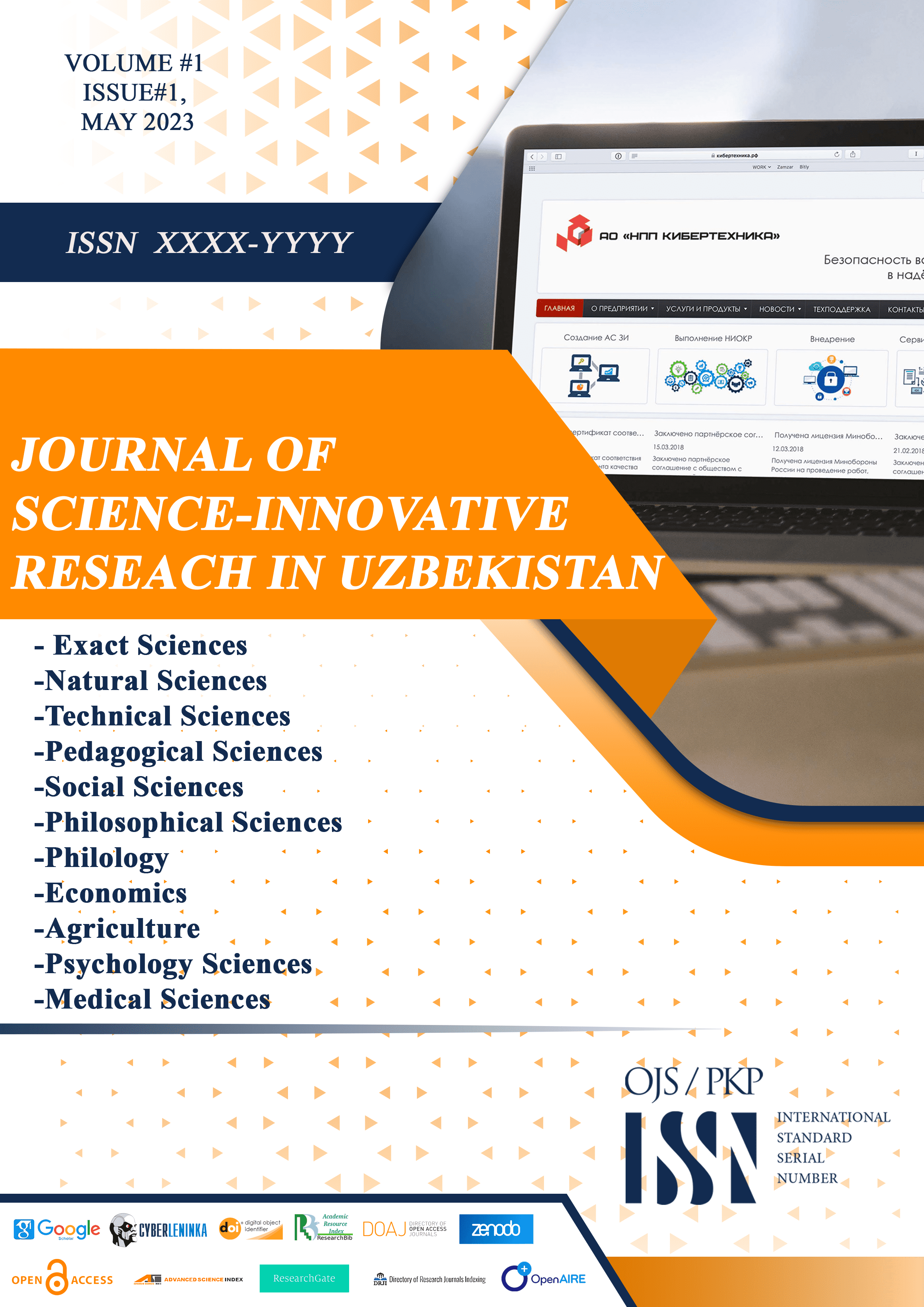Abstract
Shakespeare’s works, deeply rooted in the sociocultural and historical context of the English Renaissance, present unique challenges for translation into other languages, including Uzbek. This article examines how cultural context influences the translation of Shakespeare’s dramas into Uzbek, focusing on linguistic adaptation, stylistic preservation, and the cultural transference of meaning. The study highlights the difficulties in rendering Elizabethan-era idioms, metaphors, and historical references in a way that resonates with Uzbek audiences. Through comparative analysis, this paper explores different strategies used by translators to maintain the artistic and thematic integrity of Shakespeare’s texts while ensuring their cultural relevance for Uzbek readers. The analysis includes key examples from Hamlet, Macbeth, Othello, and Romeo and Juliet with their respective Uzbek translations, demonstrating the role of cultural adaptation in preserving meaning.
References
1. Bassnett, S. (2013). Translation studies (4th ed.). Routledge.
2. Catford, J. C. (1965). A linguistic theory of translation: An essay in applied linguistics. Oxford University Press.
3. Crystal, D. (2003). The Cambridge encyclopedia of the English language (2nd ed.). Cambridge University Press.
4. Jakobson, R. (1959). On linguistic aspects of translation. In R. A. Brower (Ed.), On translation (pp. 232–239). Harvard University Press.
5. Kadirova, N. (2018). Shakespeare’s literary legacy and its impact on Uzbek literature. Tashkent State University Press.
6. Munday, J. (2016). Introducing translation studies: Theories and applications (4th ed.). Routledge.
7. Newmark, P. (1988). A textbook of translation. Prentice Hall.
8. Nurmuhamedov, A. (2021). Shakespeare’s wordplay and its challenges in Uzbek translation. Journal of Uzbek Linguistics and Translation Studies, 8(2), 45-60.
9. Venuti, L. (1995). The translator’s invisibility: A history of translation. Routledge.
10. Wells, S. (2003). Shakespeare for all time. Oxford University Press.
11. Mamadiyorova Mariyam Kosim kizi, & Bakhtiyorova Maftuna Bakhtiyorovna. (2025). PRAGMATIC AND STYLISTIC ASPECTS OF NEOLOGISMS IN CONTEMPORARY MEDIA AND THEIR IMPLICATIONS FOR VOCABULARY TEACHING. Journal of Universal Science Research, 3(1), 89–95. https://doi.org/10.5281/zenodo.14674390 https://universalpublishings.com/index.php/jusr/article/view/9454
12. Mamadiyorova , M. ., & Bakhtiyorova , M. . (2025). PRAGMATIC AND STYLISTIC ASPECTS OF NEOLOGISMS IN MODERN ENGLISH (BASED ON MEDIA MATERIALS) AND THEIR ROLE IN TEACHING VOCABULARY. Центральноазиатский журнал междисциплинарных исследований и исследований в области управления, 2(1), 187–191. извлечено от https://in-academy.uz/index.php/cajmrms/article/view/43009
13. Mamadiyorova , M. ., & Bakhtiyorova , M. . (2025). PRAGMATIC AND STYLISTIC ASPECTS OF NEOLOGISMS IN MODERN ENGLISH (BASED ON MEDIA MATERIALS) AND THEIR ROLE IN TEACHING VOCABULARY. (2025). Journal of Science-Innovative Research in Uzbekistan, 3(1),217-221. https://universalpublishings.com/index.php/jsiru/article/view/9503
14. Sadullaeva, N., & Bakhtiyorova, M. (2021). Reflection of Onomastic Principles in Naming. Annals of the Romanian Society for Cell Biology, 3001- 3007.
15. Бахтиёрова, М. (2024). Atoqli otlarning umumnazariy muammolari. Зарубежная лингвистика и лингводидактика, 2(6), 40-45.
16. Ismoilov, A., & Bakhtiyorova, M. (2024). THE PROBLEM OF COMPONENTIAL ANALYSIS OF MEANING IN PRESENT DAY LEXICOLOGY. Current approaches and new research in modern sciences, 3(7), 26-29.
17. Alisher o'g'li, I. A., & Bakhtiyorovna, B. M. (2024, May). THE PROBLEM OF COMPONENTIAL ANALYSIS OF MEANING IN PRESENT DAY LEXICOLOGY. In Konferensiyalar| Conferences (Vol. 1, No. 10, pp. 748-752).
18. BAXTIYOROVA, M. (2024). ONOMASTIK KONSEPT TUSHUNCHASI. UzMU xabarlari, 1(1.4), 288-292. 14. Камолова, Р. Ш., & Бахтиярова, М. (2024). ЭМОЦИОНАЛЬНЫЕ КОННОТАЦИИ ПРИЛАГАТЕЛЬНЫХ, ОПИСЫВАЮЩИХ ПОГОДУ. TA'LIM VA RIVOJLANISH TAHLILI ONLAYN ILMIY JURNALI, 4(1), 30-33.
19. Baxtiyorova, M. (2023). ONOMASTIKONLARNING LINGVOMADANIY XUSUSIYATLARI. Namangan davlat universiteti Ilmiy axborotnomasi, (9), 464-469.
20. Baxtiyorovna, B. M. (2023). INGLIZ VA O ‘ZBEK BADIIY ADABIYOTIDA ONOMASTIKONLARNING CHOG‘ISHTIRMA SEMANTIK TAHLILI. " GERMANY" MODERN SCIENTIFIC RESEARCH: ACHIEVEMENTS, INNOVATIONS AND DEVELOPMENT PROSPECTS, 9(1).
21. Baxtiyorova, M. (2023). INGLIZ VA O ‘ZBEK BADIIY ADABIYOTIDA ASAR QAHRAMONLARI NOMLARINING MATN “JOURNAL OF SCIENCE-INNOVATIVE RESEARCH IN UZBEKISTAN” JURNALI VOLUME 3, ISSUE 01, 2025. YANUARY ResearchBib Impact Factor: 9.654/2024 ISSN 2992-8869 221 YARATISHDAGI ISHTIROKI. Namangan davlat universiteti Ilmiy axborotnomasi, (10), 268-273.
22. Bakhtiyorovna, B. M. (2022). Discursive-pragmatic nature of anthroponyms. Asian Journal Of Multidimensional Research, 11(9), 110-114.
23. Bakhtiyarova, M. B. (2021). VERBALIZATION OF THE CONCEPT" ONIM" IN LINGUOCOGNITOLOGY. Ростовский научный вестник, (3), 11- 12. 20. Baxtiyorova, M. B. (2020). ANTROPONIMLARNING SHAKLLANISHIDA MORFEMALARNING SEMANTIK VA USLUBIY XUSUSIYATLARI. Студенческий вестник, (36-3), 96-98.
24. Bakhtiyorova, M. (2019). THE EFFECT OF USING MNEMONICS. Студенческий вестник, (22-8), 63-65. 22. Pulatova, S., & Bakhtiyorova, M. (2019). THE STRUCTURALSEMANTIC ANALYSIS OF THE WORDS RELATED TO" SPORTS" IN PRESENT DAY ENGLISH. Студенческий вестник, (22-8), 69-71.
25. Bakhtiyorova, M., & Djumabayeva, J. (2017). WRITERS MAKE NATIONAL LITERATURE, WHILE TRANSLATORS MAKE UNIVERSAL LITERATURE. Студенческий вестник, (10), 55-56.
26. Bakhtiyorova, M., & Elmurodova, F. (2017). THE PRINCIPLES OF SEMANTICS. Студенческий вестник, (10), 52-54.

This work is licensed under a Creative Commons Attribution 4.0 International License.

